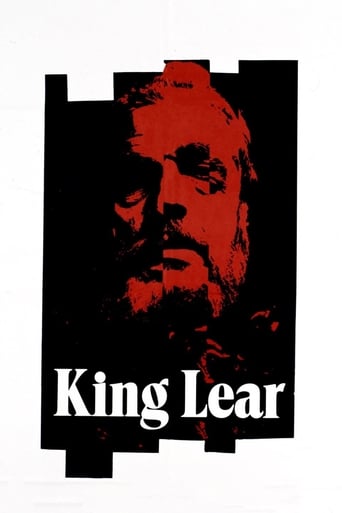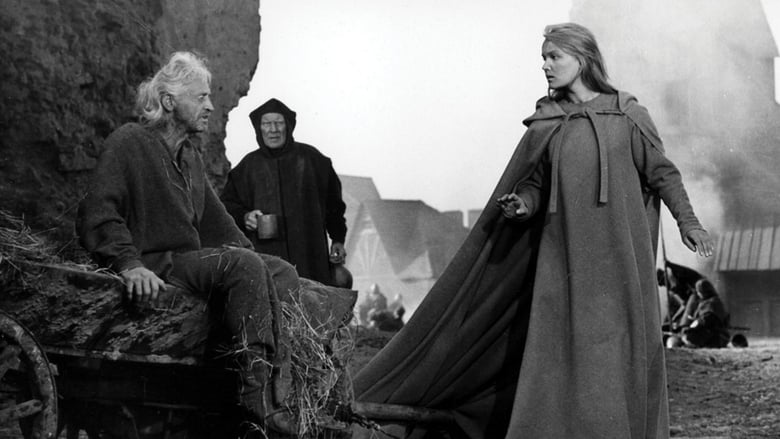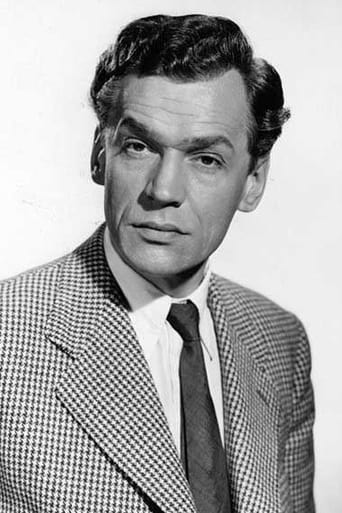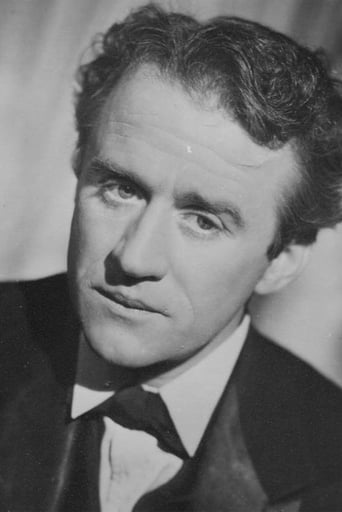King Lear (1971)
King Lear, old and tired, divides his kingdom among his daughters, giving great importance to their protestations of love for him. When Cordelia, youngest and most honest, refuses to idly flatter the old man in return for favor, he banishes her and turns for support to his remaining daughters. But Goneril and Regan have no love for him and instead plot to take all his power from him. In a parallel, Lear's loyal courtier Gloucester favors his illegitimate son Edmund after being told lies about his faithful son Edgar. Madness and tragedy befall both ill-starred fathers.
Watch Trailer
Free Trial Channels
Cast


Reviews
Too many fans seem to be blown away
While it is a pity that the story wasn't told with more visual finesse, this is trivial compared to our real-world problems. It takes a good movie to put that into perspective.
It's simply great fun, a winsome film and an occasionally over-the-top luxury fantasy that never flags.
The movie turns out to be a little better than the average. Starting from a romantic formula often seen in the cinema, it ends in the most predictable (and somewhat bland) way.
The small number of reviewers here to date seem to be struggling to summarise the effect that this production has had on them. That is the only consensus: it does not appear to be possible to judge how "good" or "bad" Brook's interpretation of this extraordinary piece of work really is. I don't think I've ever sat through an equivalent film as heavily and relentlessly bleak and demanding as this, without turning away through boredom or switching off in irritation. My constant preoccupation was how this would have been received by the original audience. Could this have been called entertainment? What was Shakespeare thinking of? This is a merciless vision of life's meaningless cruelty, and the animal savagery that underlies humanity's drives and ambitions. Other productions may compete with it. I was greatly impressed by Olivier's version. But anyone with more than a passing interest in the wheel of fire owes it to himself, or herself, not to miss this exceptional picture.
This was the first performance of King Lear I saw (live or film) that really worked: first, because it is true to Shakespeare; and second, because it is conceived as a film. Yes, many scenes are truncated, but nothing essential. If anything, our impressions of the characters are strengthened because we see only what brings out their traits and relations with each other most strongly. As cinema, it works because it is so visual. Consider the scene near the end, for instance, where Edgar (faceless in plate armor) challenges his bastard brother. Edmund's response is cut to one line, "In wisdom I should ask your name." The setting sun glints from the edges of their axes. Then after one flurry of brutal action, Edmund is dying and gasping out his belated repentance. In most performances, the essentials of this scene are lost by prolonging the combat with swashbuckling acrobatics, but Brooks shows us exactly what we need to see, with no distractions. After the film, I saw a local actor come out who had recently played Lear in a live performance. He was in shock.Laurence Olivier's film of Lear, by contrast, works because of his performance, which is transcendent. He brings the character vividly to life, and makes us care about him, with many small nuances of gesture, facial expression, and movement - not only when he is speaking, but also in reaction to other characters. It is a classic example of an actor adapting a staged performance for film by scaling down his gestures and taking advantage of the intimacy of the camera. All the other versions of King Lear I have seen suffer from dull stretches, because either the actor playing Lear lacks emotional range, or the director distracts from the story and characters with too much stage business.Brooks and Olivier show us two ways to make the play work: by translating it into pure cinema, or by giving a performance that brings out the full range of Lear's character and tragedy.
Peter Brook's film is a very bleak and barbaric interpretation of King Lear. He does a great job directing and whilst some of his experimentation doesn't pay off (such as very strange zooming with Kent at the beginning), when it does pay off it is fantastic (such as Lear's monologues)
Easily one of my favorite movies of all time, Peter Brook's King Lear demands that you think, and will disturb you because you are alive and will one day (statistically speaking) be an old, foolish, feeble, mistake-laden human. Comment to the angles and lighting and all the things that seem to consistently disturb viewers: place yourself in the mind of a slowly ebbing ego, driven to rage over confusion and denied shame--an old man of four score and not a day more, in love with his youngest daughter, living his final days having denied and banished her... of course you are never going to see someone clearly, steadily, squarely, or in the same screen area. This masterfully bleak representation of one of Shakespeare's more difficult plays is unjustly in moratorium. I have shown it to many of my classes and will continue until the tape is worn with holes. Brook's treatment of Edgar is so haunting, so perfect, if you leave this feeling empty and lost, bravo! He who scoffs at their first viewing of this film is simply not watching the film, but is watching their expectations dashed on the wall.








